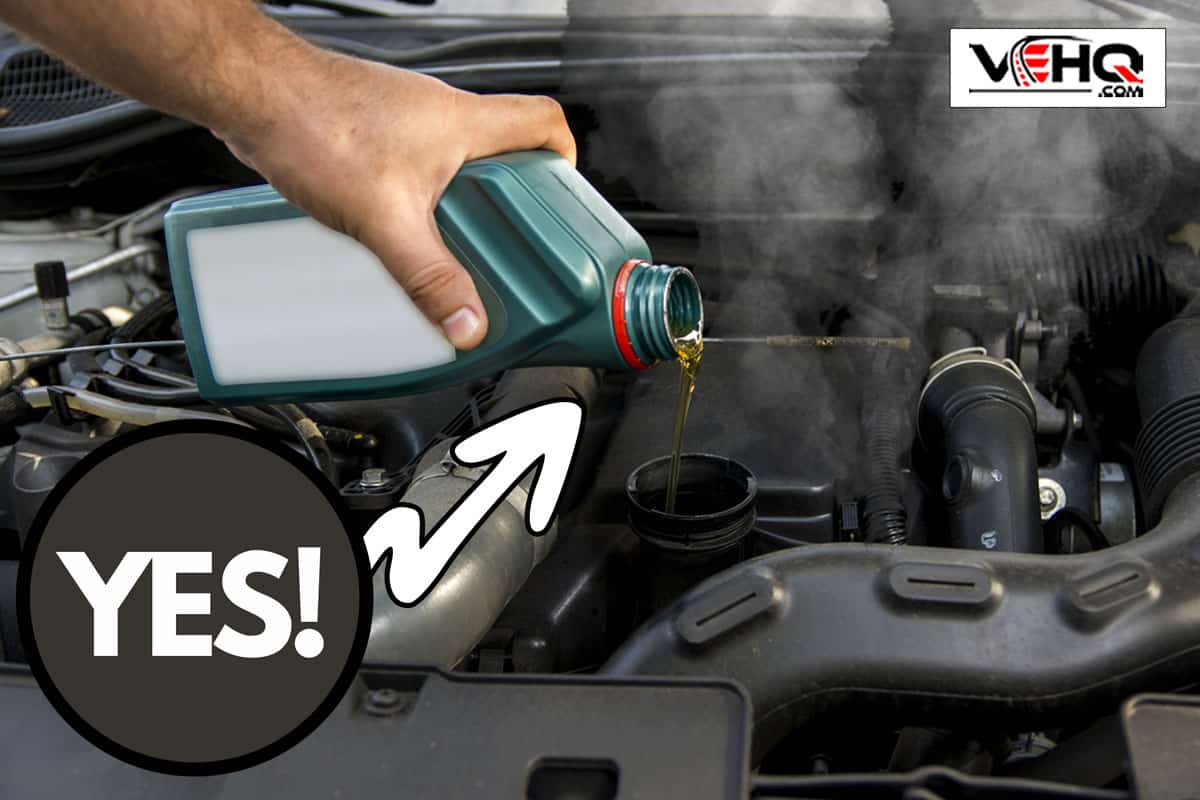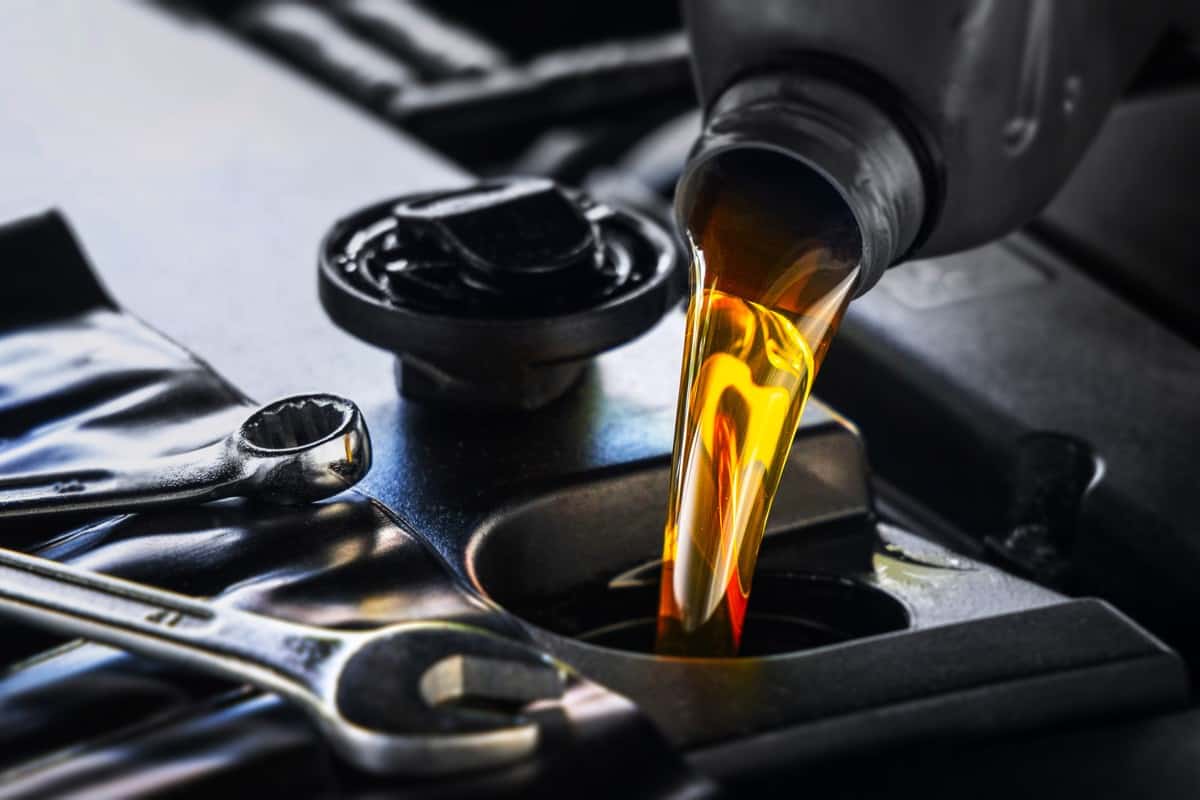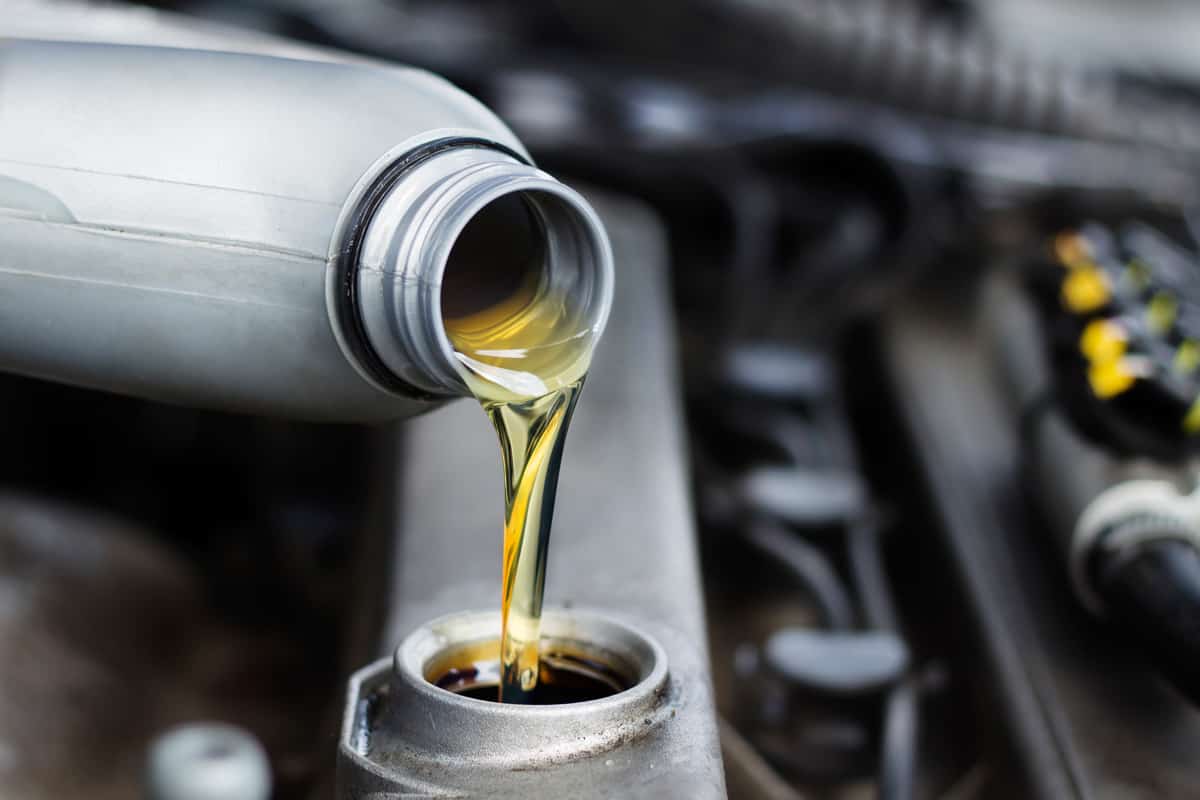Certain fluids will leave your vehicle over time due to evaporation. But is this true about motor oil? We researched this vital lubricant from multiple professional sources so that you'll know for sure why your oil level might be dropping.
Car oil will evaporate over time due to the heat of the engine. Evaporation of the oil is not the only reason an engine will lose oil, however. A drop in oil levels can be the result of:
- The engine is burning oil
- Gasket and other leaks
- Cracked head gasket
- Holes
Now that we know that evaporation can decrease your car oil, we'll take a closer look at it and the other reasons why your dipstick reads low. You might also be wondering how often you should get your oil changed, or what color good engine oil should be. For the answers to these questions and more, read ahead in this post to see what our research has uncovered.

The reasons why your vehicle might be losing motor oil

We listed the reasons your engine might be running low on oil earlier in this post. While some oil loss over time is normal, some causes should concern you. If your vehicle is beginning to consume a lot more oil than normal, evaluate each of the potential reasons that we will discuss in detail below.
A thorough engine inspection by a trusted mechanic or dealership will be able to diagnose the cause. While some can be cheaply remedied, others will be harder on your wallet.
Evaporation
We mentioned that oil will evaporate over time from your engine. It's hard to think that something with this amount of consistency can evaporate. Spill some on the pavement and odds are nothing will happen over time. Leave a container of it open and the same amount will remain after years.
But subject this substance to intense heat and it will begin to evaporate. The lighter molecules inside the oil will begin to leave when the engine is running hot. Over months, the level of oil will begin to drop a bit due to this evaporation.
Keep in mind that it would take a great amount of time to have a substantial amount of oil left in this way. But it's also important to know that the oil left behind is thicker and has a greater amount of viscosity. The thicker the oil, the harder it has to work to lubricate and cool the engine. This is another incentive to getting your motor oil changed regularly.
The engine is burning oil
The oil is kept inside your engine in large part due to the valve rings and piston rings. But if this leaks, the oil will begin to slowly seep into the combustion chamber of your engine. When this happens, the oil will begin to burn.
The intense heat of the engine causes the oil entering the chamber to become consumed. You might notice this is happening by paying attention to the color of your exhaust smoke. If your engine is burning oil, the smoke from your tailpipe will be dark blue or black.
A trained mechanic can change out the faulty piston rings and valve rings for you. Failure to do so will result in the leaks getting worse, and your engine burning the oil at a greater rate.
Gasket and other leaks
There are numerous gaskets inside of your engine, meant to keep fluids from seeping out of the compartments they are needed in. If any of these gaskets get warped or damaged, they will no longer seal in place. When this happens, the fluids will leak into places they should be kept out of.
These gaskets are usually damaged from an engine overheating. Whether it's from low radiator coolant or low oil, a hot engine can create a lot of problems. Keeping your engine from exceeding certain temperatures will go a long way in saving the seals and gaskets, as well as the many other parts.
Your vehicle could be leaking oil from the oil cap not being secured properly. Oil can also seep out if the oil plug wasn't tightened, or if the new oil filter wasn't seated correctly.
Cracked head gasket
The head gasket is the copper barrier that prevents gasoline from entering the coolant system. But if this gasket cracks badly, it can lead to both coolant and oil spilling onto the engine head.
These spills will only get worse over time. A cracked head gasket is a serious matter, one that can typically be avoided if the engine is kept from overheating.
When this happens, it's usually time to rebuild the entire engine. This is a costly process, one that is usually done by a trained mechanic. Many times, it will be better to replace the car than to have the engine rebuilt. This will depend on the age and model of the vehicle and the other issues it might have, of course.
Holes
Oil can find its way out of your engine through holes. Sharp rocks that get propelled into the oil pan can perforate it, causing an oil leak. Intense heat can also cause holes in gaskets and seals.
No matter why your vehicle is consuming more oil than normal, you will need to address it. Odds are, these problems will only get worse over time. Some, if left unremedied, will lead to you needing to replace your entire engine.
How often should I get my oil changed?

The frequency of oil changes will be carefully outlined in your vehicle's owner's manual. When you need an oil change will depend on the model vehicle you drive. It also will vary based on the type of oil you use.
If you use traditional motor oil, expect to have it changed every 3,000 to 4,000 miles. This oil type will lose its ability to cool and lubricate the older it gets. But if you use synthetic oil, the frequency will increase greatly.
Depending on the model vehicle, you will need to change synthetic motor oil every 5,000 to 10,000 miles. Carefully read the maintenance section of your owner's manual for the exact oil change intervals. Following the maintenance schedule will help ensure that your vehicle will be on the road for years to come.

What color should my engine oil be?
When you check the oil level in your engine, you will be able to see this fluid on the dipstick. Ideally, this lubricant should be a yellowish-brown color or an amber.
Oil will begin to change color after it has been run through the engine. It will evaporate a bit, and become thicker. It will pick up impurities and debris, in the form of carbon deposits. This will make it slowly turn a darker brown.
If you change your oil regularly, you will avoid having oil circulate in your engine with the impurities that make it change to a dark color.

Final thoughts
The oil in your engine will evaporate slowly over time. This evaporation is not the only reason why your vehicle might be running low on oil. No matter why your vehicle is abnormally consuming oil, you should have the problem evaluated and remedied as soon as possible. This will help avoid more costly repairs in the future and might save the life of your engine. Drive safe!
We hope this post on motor oil answered all of your questions. For additional helpful information, we suggest reading the following automotive posts:
Will Adding Oil Make Car Start? [And How To Tell If Your Oil Is Low]
Can Transmission Fluid Get Low Without A Leak? [6 Points To Check]
